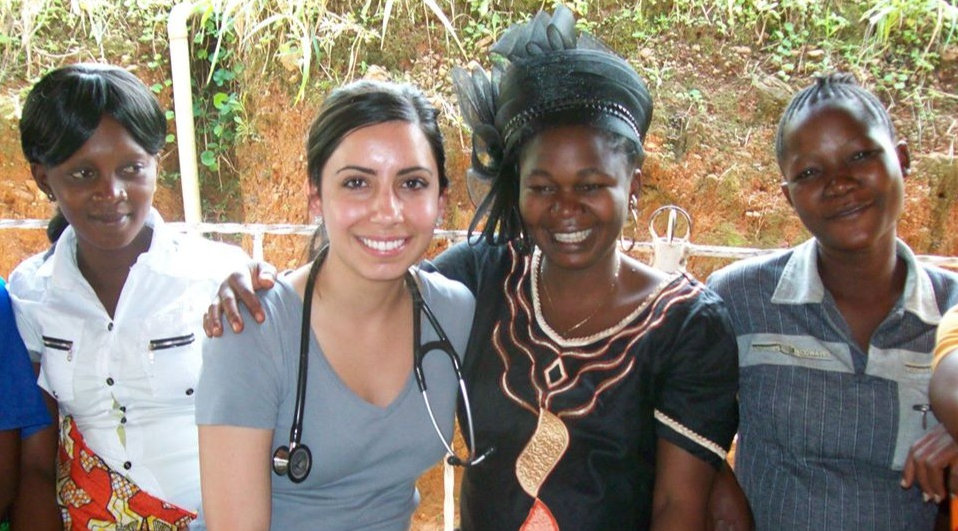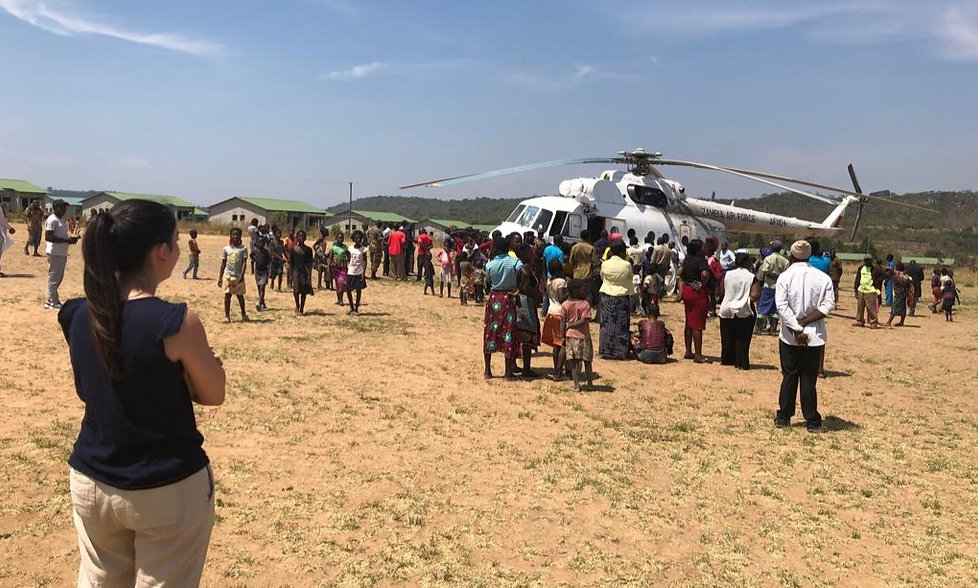Global Emergency Medicine
The global emergency medicine ("GEM") fellowship is uniquely designed to be tailored to the fellow’s career interest— including but not limited to disaster medicine, humanitarian response, public health, emergency medicine development. The fellowship can be completed in one or two year depending on if an advanced master’s degree is pursued. If a one year fellowship is pursued, expect to spend 5-6 months internationally.
Interested applicants should email fellowship director, Dr. Joel Hamm (joel.hamm@uky.edu) for more information.
Fellowship year starts on July 1.
Global Health Curriculum
Fellows take courses that prepare them for their area of interest in global health. Specific training courses that are available include:
- A diploma course to earn a Diploma of Tropical Medicine & Hygiene (DTM&H). Potential courses include the Gorgas Diploma Course, Professional Diploma in Tropical Medicine and Hygiene, or Diploma in Tropical Medicine and Hygiene. Other potential courses can be found with the American Society of Tropical Medicine and Hygiene and preparation for a Certificate of Tropical Medicine can be pursued as well.
- Humanitarian and disaster medicine training courses are available including the Humanitarian Response Intensive Course at Harvard or attending a H.E.L.P. course by the ICRC. The Harvard course is a 2 week course that prepares one for participation in international disaster response and includes a three day simulation response of a complex humanitarian emergency.
- Other potential courses include the Asian Clinical Tropical Medicine Course in Thailand and Cambodia, international ultrasound courses, or courses developed through the Consortium of Universities of Global Health.
International Field Work
The fellow may complete six to eight weeks working abroad on an international project. This may completed be all at one site or multiple sites depending on the interests of the fellow.
Previous or upcoming international collaborations by global health faculty and fellow include sites in Kenya, Tanzania, and Haiti as well as teaching the World Health Organization Basic Emergency Care Course in Zambia. Fellows are encouraged to find opportunities in areas of the world they are most interested in or may join faculty in ongoing projects as well.
Public Health
If interested there is also the option is to obtain an advanced degree in the field of interest of the fellow. A Master of Public Health degree is one option, and can be pursued remotely via the University of Kentucky to allow for flexible field work schedule.
Clinical Medicine
The University of Kentucky Chandler Hospital is a leader in tertiary care and is a Level I Trauma Center. Chandler Hospital has a 110 bed ED that serves about 85K patients per year. As attending physicians/clinical instructors, fellows supervise residents and students in the emergency department. Fellows will supervise UK emergency medicine residency PGY 1-3. Fellows will also serve as clinical faculty at Good Samaritan Hospital. This is a community hospital with approximate annual volume of 30K, staffed with scribes and advanced practice practitioners.
Humanitarian Aid and Disaster Response
Response to international disasters and complex humanitarian emergencies may be needed during the fellow year as well, potential collaborating organizations include but are not limited to Rescue Committee, Oxfam, CARE, Red Cross/Red Crescent, Médecins Sans Frontières, Samaritan’s Purse, Missions to the World, Catholic Relief Services.
Mentorship and Education
The UK Emergency Medicine residency is now offering a focused global emergency medicine track to interested residents. This is a comprehensive, longitudinal educational experience in global health designed to provide emergency physicians-in-training with the experience and foundation to become leaders in global health. Fellows will be matched with residents to mentor based on their specific areas of interest. Fellows are responsible for helping to guide research, seek learning opportunities abroad, and develop a career path in global health based on the resident’s interests. The division of global emergency medicine will hold monthly meetings to discuss core principles of humanitarian response, public health, tropical medicine, and global health in resource-limited settings. Fellows will also teach at annual conferences and workshops, such as the Global Health Leadership Symposium and Ultrasound in the Tropics, which are open to all residents and medical students.
Susan Owens, MD, MPH, FACEP
I attended medical school at University of Texas Medical Branch in Galveston, Texas where I spent time learning about provision of care in resource-limited settings in India and Uganda. I completed my emergency medicine residency at the University of Cincinnati, where I worked on global health projects in Tanzania, India, and Guyana. I then completed my global emergency medicine fellowship and earned a master's degree in Public Health at George Washington University in 2022, with a special focus on global health program design, monitoring, and evaluation. As a fellow, I was part of the core faculty for the Masters in Emergency Medicine (MEM) program, a multi-institutional partnership that provides emergency medicine training to physicians in India, and continue working with this group while I work clinically at UK. In addition to the MEM program, I am also core faculty for the Faculty Development Program, a longitudinal one-year course hosted by the Ronald Reagan Institute for Emergency Medicine at George Washington University for EM physicians in Saudi Arabia. My personal global health interest is system development through capacity building and workforce development. At UK, I work with Dr. Hamm to support our residents interested in global emergency medicine and serve as faculty advisor for the UK Global Brigades chapter, an undergraduate student organization.
Joel Hamm, MD, MPH, FACEP
I am a Kentucky native and graduate of the University of Kentucky College of Medicine (COM) then completed an emergency medicine residency and an international emergency medicine fellowship at the University of Alabama at Birmingham and earnd an MPH at Western Kentucky University. As part of the fellowship, I completed the Gorgas Diploma Course in Clinical Tropical Medicine in Lima, Peru, earning the Diploma of Tropical Medicine and Hygiene. I’ve provided medical care in low resource settings at Tenwek and Kijabe Hospitals in Kenya with World Medical Mission, as well as in Jordan, El Salvador, Peru, Ecuador, and Gambia.
At UK, I am always looking for collaborations across specialties in the college and across campus to work in global health, as well focus on global health education for students, residents, and fellows, and service opportunities abroad.

